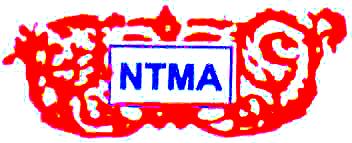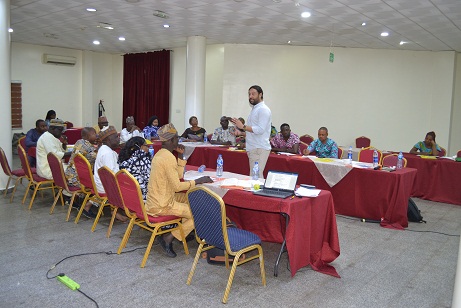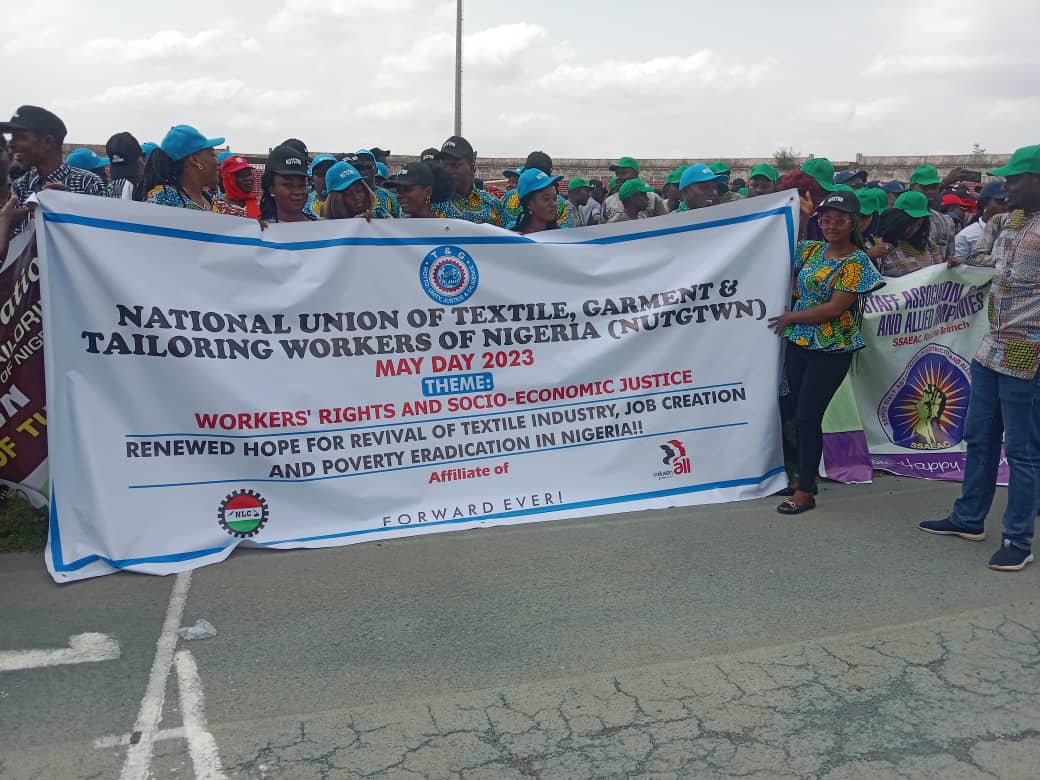
The Union (National Union of Textile Garment and Tailoring Workers of Nigeria (NUTGTWN) and the Nigeria Textile Manufacturers’ Association (NTMA) had a joint Press Conference on the state of the textile and garment industry in Nigeria At The National Headquarters Of The Ntma, G.R.A., Ikeja, Lagos, On Thursday, 12th May, 2022. The Conference centered on the theme: NIGERIA’S TEXTILE INDUSTRY AND LACK OF COMPETITIVE EDGE.
The text of the Press Conference reads;
Ordinarily, the year marking the 65th anniversary of Textile Industry in Nigeria should have been time for celebration and popping of champagnes. But this, sadly, is not our situation. If the truth must be said: our industrial sector is dying and needs urgent interventions from the federal government to keep it alive. President Buhari still has the opportunity to leave a mark as the President that fully revives the Nigeria’s Textile Industry.
First, our membership has shrunk from 175 textile industrial firms in 1985 to less than 20 currently in 2022.
Employment-wise, the number of jobs provided by the industry took a dive from 137,000 jobs in 1996 to 24,000 jobs in 2008. Today the number of jobs provided in the industry is less than 20,000 jobs.
This is sad for an industrial sector that was once adjudged the highest employer of labour in Nigeria after the federal government in the 1980s when it had manpower of 500,000 workers under its employment.
Nigerian textiles used to be key manufacturer of textile products that were exported through the formal channels and by way of cross-border trade in west and central Africa. However export of textile products suffered a setback between 2003 and 2008. Textile exports touched their lowest ebb in 2006 however recovered some lost ground in 2007-08.
Today, the situation is even worse as our exportability is next to zero.
The major factors responsible for our declining export capacity include;
– Loss of preferencial market access in the EU and USA
– Loss of preferential market access in the EU and US;
– Inconsistent implementation of Export Expansion Grant (EEG) policy, particularly a perennial backlog of EEG claims
– Inconsistencies in the implementation of ECOWAS Trade Liberalization Scheme (ETLS)
The recent Nigerian Bureau of Statistics trade report for 2021 showed clearly that textile material was the most imported material into the country.
Imported textile accounts for over 95 per cent of the market share in Nigeria.
State of Industry
It should be observed that in spite of the efforts to revive the textile industry, the sector is still confronted with many challenges that included high-cost production that has rendered its products non-competitive; unrestrained smuggling and counterfeiting of Made-in-Nigeria textiles; poor patronage in spite of Federal Government of Nigeria’s Executive Order 003 of 2017, inadequate and costly electricity supply, poor infrastructure, high taxation and interest rates, high cost of diesel and LPFO and the depreciating value of the naira.
The state of the industry particularly in the North is made worst by the heightened insecurity that is pushing away customers of the few existing industries in the North and also discouraging new investment in the area.
We wish to emphasize that the government must do more to provide the enabling environment for the revival of the textile industry in Nigeria and manufacturing activities in general.
We also frown at the Nigeria Customs Service (NCS) for not effectively combating smuggling such that cheap smuggled textile products largely from China and other Asian countries continue to dominate the local market with little or no access to locally produced textiles.
We, therefore, call on the Nigeria Customs Service to be more patriotic and adopt new creative measures that must include consistent raids of the warehouses of smugglers in Kano, Lagos, Kaduna, Onitsha and other cities of Federation.
We also reiterate our demand for the establishment of a Presidential task force made up of relevant stakeholders including the textile manufacturers and the union with the power to confiscate goods smuggled into the country as was the case during the administration of former President Olusegun Obasanjo.
We also wish to state clearly that the promised benefits of the African Continental Free Trade Agreement (AFCFTA) will elude Nigeria if the illegal imports of textile fabrics and other products Nigeria has the capacity to produce locally continue to find their way into the Nigerian markets unchecked.
However, the NTMA along with our labour union, wishes to acknowledge some measures by the Federal Ministry of Industry, Trade and Investment, the central Bank of Nigeria (CBN), and the Bank of Industry (BOI) aimed at resuscitating the textile industry. We demand urgent Meeting of industry stakeholders including the workers union to objectively review some of these measures to ascertain the level of success as well as the challenges.
One of the major problems of the industry is poor patronage in spite of the Federal Executive Order 003 on the patronage of locally produced goods. We therefore call on relevant agencies of government to comply with the executive order by patronizing locally produced textiles to avert further factory closures and attendant loss of jobs.
We are also calling on President Muhammadu Buhari to ensure holistic implementation of the Cotton Textile Garment (CTG) policy. The textile industry remains a critical plank for addressing the current high level of unemployment and attendant security challenges in the country. A fully revived textile industry is capable of creating millions of jobs, addressing the security challenges in the country, improving internally generated revenue, reducing billions of dollars in import bills incurred annually on textile and apparel, safeguarding and earning foreign exchange for the country.
We also urge the state governments to complement the Federal government’s efforts through complementary bold industrial policies that will revive closed factories in their localities such as the provision of infrastructure, granting of genuine tax incentives, and patronage of Made-in-Nigeria products.
Let us put it on record that we commend the Governor of Anambra State, His Excellency, Professor Chukwuma Soludo, for embracing the wearing of Nigerian made fabric, ‘Akwuete’. We urge other government functionaries in the federal, state, and local governments to emulate his worthy example of the consumption of local fabrics. Let us wear what we produce and produce what we wear.
We call on the Federal government to ensure full implementation of the Cotton, Textile and Garment (CTG) policy. They thrust include;
- Creation of industrial parks to address infrastructural problems;
- Resolving the issues of raw materials using specific initiatives for cotton production like the BT cotton and the creation of a cotton buying centre
- Electricity tariff should be competitive even with Ethiopia, South Africa, Kenya and Egypt.
- Levy on Raw materials export of 25% must be at par with the import that is just 5%
- Full implementation of Executive Order 003
- Cancellation of VAT charges in textiles as was done to Ghana Textiles.
Signed:
Folorunsho Daniyan
PRESIDENT, Nigeria Textile Maufacurers Association (NTMA)
John Adaji
PRESIDENT, National Union of Textile Garment and Tailoring Workers of Nigeria (NUTGTWN)






